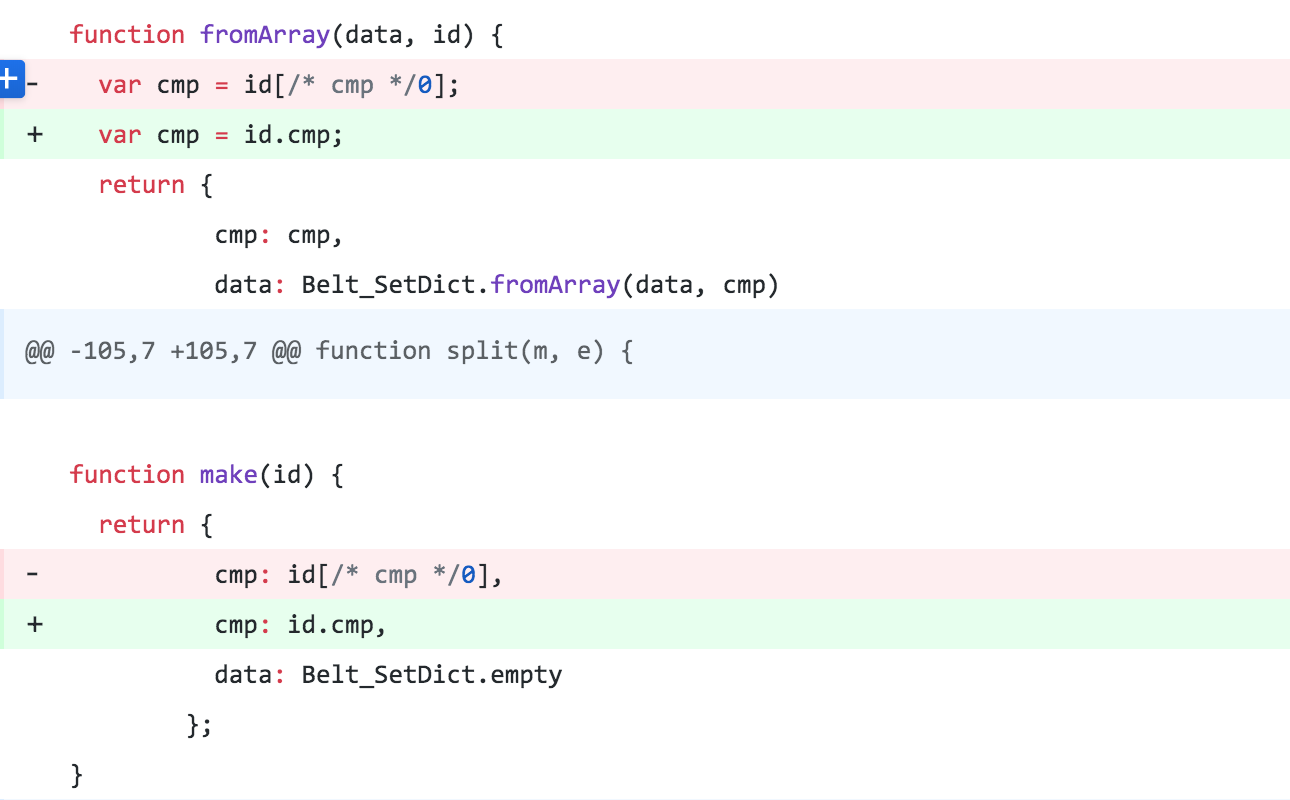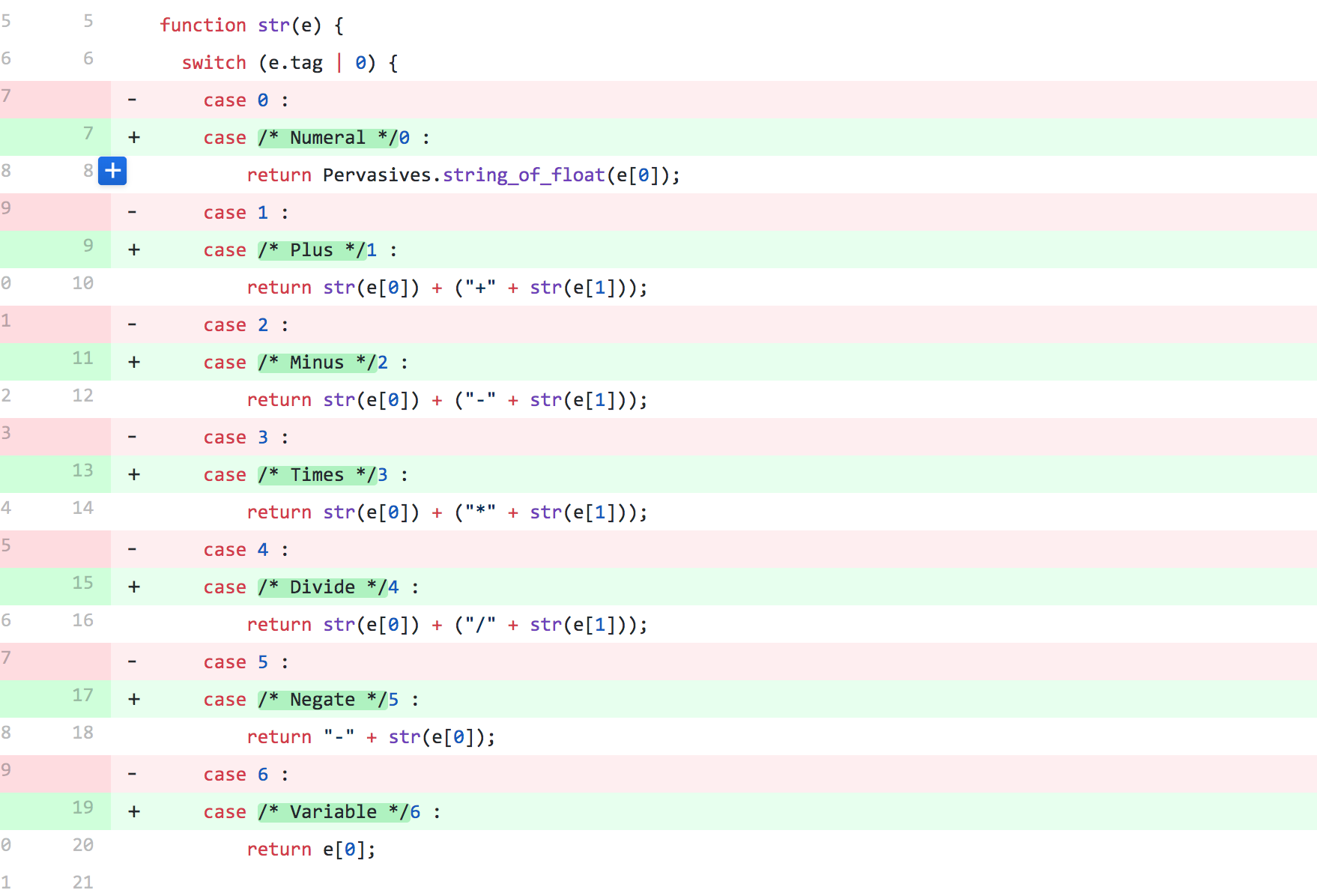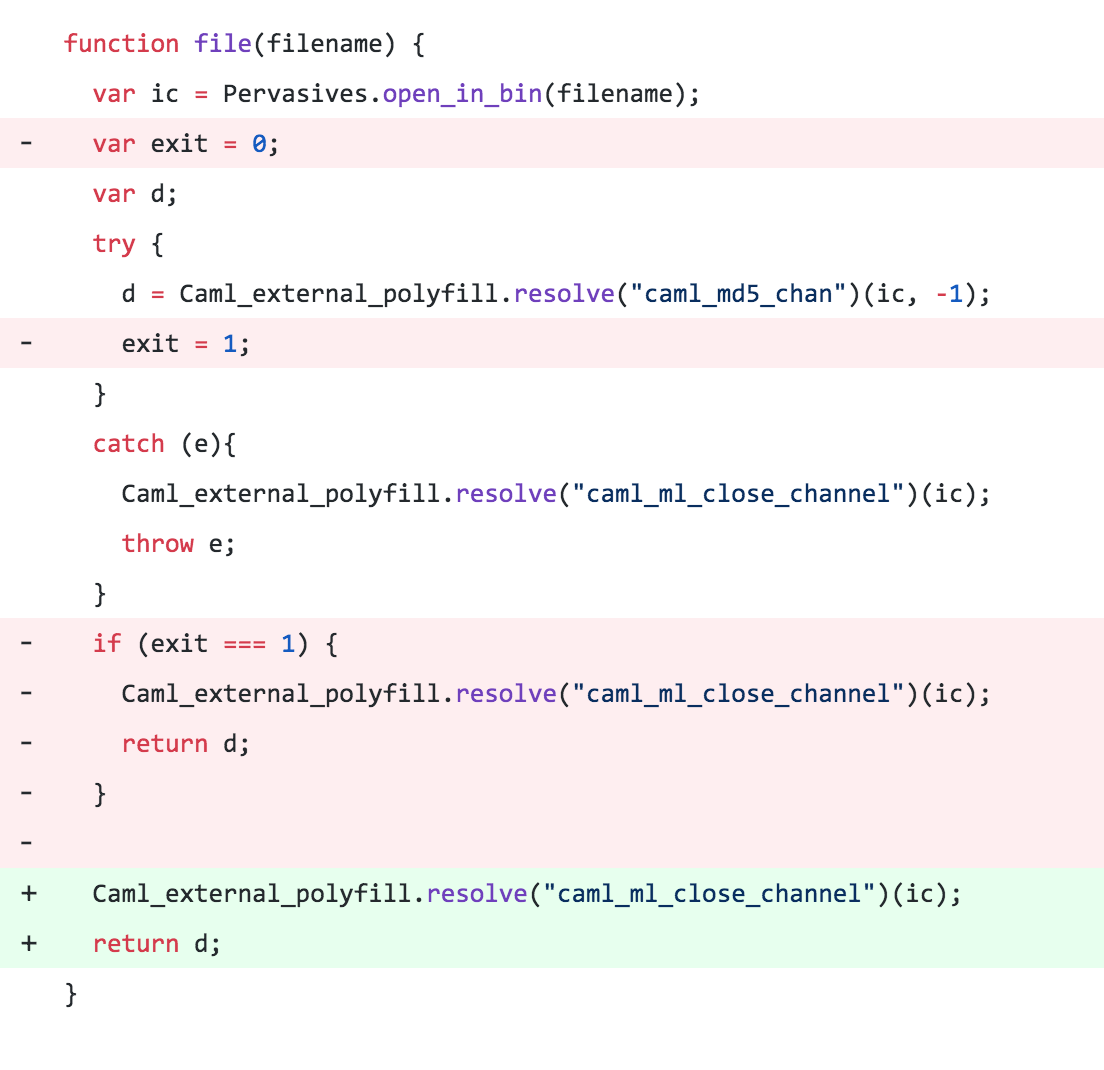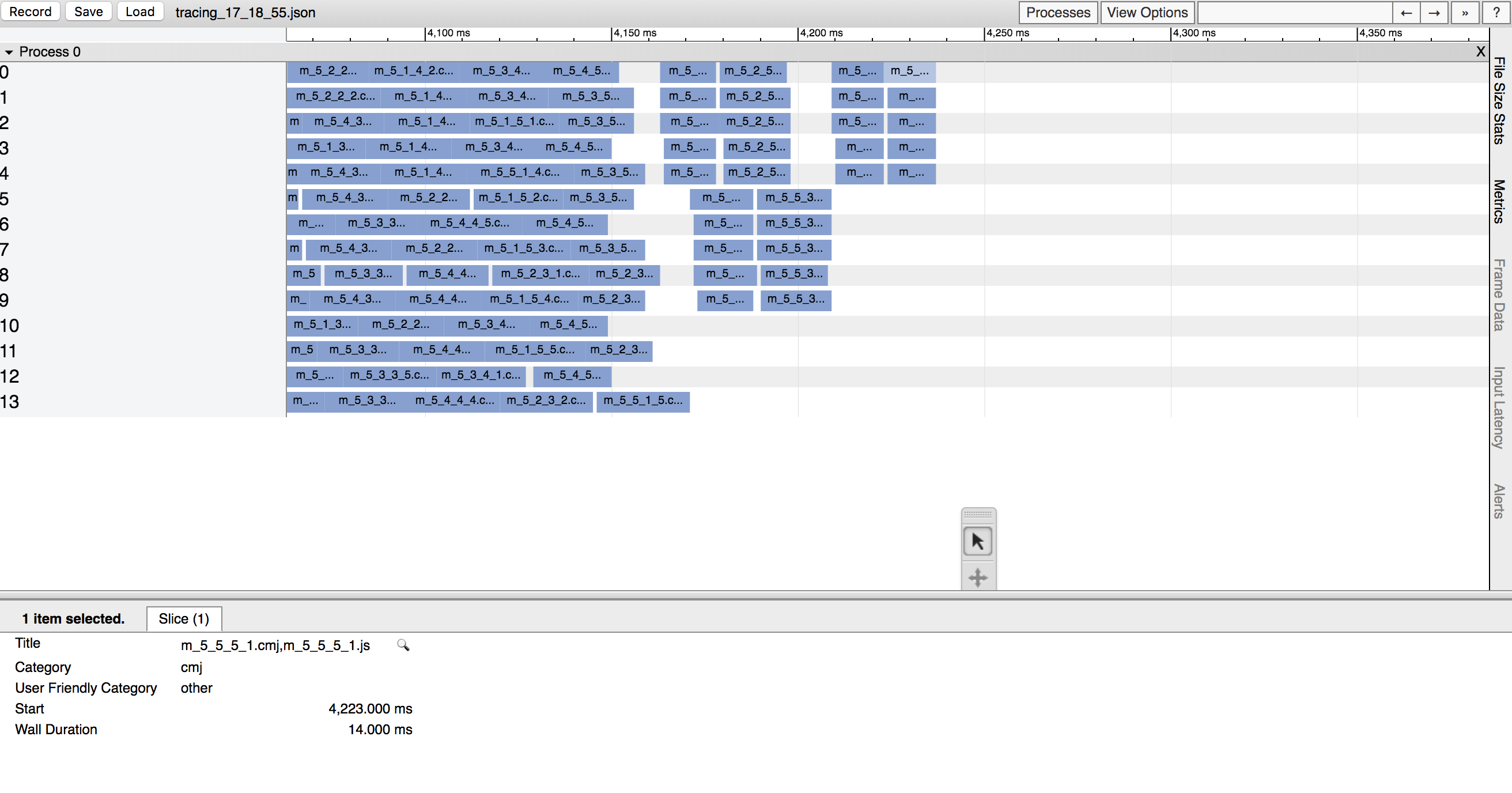Another way of encoding type identity for BuckleScript libraries without using big functor
Note this article is for library authors, it has something in depth which is not necessary for people who use BuckleScript at daily work.
When we build some generic data structure, abstract over function is not enough. For example, a type safe generic balanced AVL tree not only relies on the types of a comparison function, but also the identity of such function. Two balanced AVL trees which are initialized over same type of comparison function still can not be mixed.
module Eq1 = {
let eq = (x, y) => x == y;
};
module Eq1 = struct
let eq x y = x = y
end
module Eq2 = {
let eq = (x, y) => x == y;
};
module Eq2 = struct
let eq x y = x * x = y * y
end
Take the two modules above for example, they have the same type, but we need a way to mark their identity so that data structures instantiated using them can not be mixed.
A traditional way is using functor:
module Make (Cmp : sig
type t
val eq : t -> t -> bool
end) =
(struct
open Cmp
type key = t
type coll = key list
let empty = []
let add (y : coll) (e : key) =
if List.exists (fun x -> eq x e) y then
y
else
e::y
end : sig
type key = Cmp.t
type coll
val empty : coll
val add : coll -> key -> coll
end )
module Ins1 = Make(struct
type t = int
let eq x y = x = y
end)
module Ins2 = Make(struct
type t = int
let eq x y = x * x = y * y
end)
module Make = (
Cmp: {
type t;
let eq: (t, t) => bool;
}) : {
type key = Cmp.t;
type coll;
let empty: coll;
let add: (coll, key) => coll;
} => {
open Cmp;
type key = t;
type coll = list(key);
let empty = [];
let add = (y: coll, e: key) =>
if (List.exists(x => eq(x, e), y)) {
y;
} else {
[e, ...y];
};
};
module Ins1 = Make({
type t = int;
let eq = (x, y) => x == y;
});
module Ins2 = Make({
type t = int;
let eq = (x, y) => x * x == y * y;
});
By marking coll as abstract type, when such functor is initialized,Ins1.coll and Ins2.coll are no longer the same.
let v = [Ins1.empty; Ins2.empty]
let v = [Ins1.empty, Ins2.empty];
When mixing them together, we get a type error
File ..., line 31, characters 21-31:
Error: This expression has type Ins2.coll
but an expression was expected of type Ins1.coll
There are some issues with such encoding:
From runtime point of view,
Ins1is initialized during runtime, its implementation is a big closure, which means even if you only use on function inIns1module, all functions will be linked in.From user point of view, people has to call
Ins1.addandIns2.addinstead of callingIns.add, this makes code less polymorphic.
Now we introduce another encoding, note it is quite sophiscated that is recommended only for library authors
module Cmp: {
type cmp('a, 'id);
let eq: (cmp('a, 'id), 'a, 'a) => bool;
module Make: (
M: {
type t;
let eq: (t, t) => bool;
}
) => {
type identity;
let eq: cmp(M.t, identity);
};
} = {
type cmp('a, 'id) = ('a, 'a) => bool;
module Make = (
M: {
type t;
let eq: (t, t) => bool;
}
) => {
type identity;
include M;
};
let eq = (cmp, x, y) => cmp(x, y); /* This could be inlined by using externals */
};
open Cmp;
module Coll: {
type coll('k, 'id);
let empty: cmp('k, 'id) => coll('k, 'id);
let add: (coll('k, 'id), 'k) => coll('k, 'id);
} = {
type coll('k, 'id) = {
eq: cmp('k, 'id),
data: list('k),
};
let empty = (type t, type identity, eq: cmp(t, identity)) => {
data: [],
eq,
};
let add = (x: coll('k, 'id), y: 'k) =>
if (List.exists(a => Cmp.eq(x.eq, a, y), x.data)) {
x;
} else {
{
data: [y, ...x.data],
eq: x.eq,
};
};
};
module Cmp : sig
type ('a, 'id) cmp
val eq : ('a,'id) cmp -> 'a -> 'a -> bool
module Make : functor (M :
sig type t
val eq : t -> t -> bool
end
) -> sig
type identity
val eq : (M.t, identity) cmp
end
end = struct
type ('a, 'id) cmp = 'a -> 'a -> bool
module Make (M: sig
type t
val eq : t -> t -> bool
end) = struct
type identity
include M
end
let eq cmp x y = cmp x y (* This could be inlined by using externals *)
end
open Cmp
module Coll : sig
type ('k, 'id) coll
val empty : ('k, 'id) cmp -> ('k,'id) coll
val add : ('k, 'id) coll -> 'k -> ('k,'id) coll
end = struct
type ('k, 'id) coll = {
eq : ('k,'id) cmp;
data : 'k list
}
let empty (type t) (type identity) (eq : (t,identity) cmp) = {
data = [];
eq = eq
}
let add (x : ('k,' id) coll) (y : 'k) =
if List.exists (fun a -> Cmp.eq x.eq a y) x.data then x
else {
data = y:: x.data;
eq = x.eq
}
end
The key is the construction of Cmp modules, we create an abstract type cmp which is signed by a phantom type as its identity, it is unique whenever user create it by calling Make functor. Here we are still using functor, but it is small functor.
The usage is as below:
module S0 = Make (struct
type t = int
let eq x y = x = y
end)
module S1 = Make (struct
type t = int
let eq x y = x * x = y * y
end)
let v0 = Coll.empty S0.eq
let v1 = Coll.empty S1.eq
let a0 = Coll.add v0 1
let a1 = Coll.add v1 1
module S0 = Make({
type t = int;
let eq = (x, y) => x == y;
});
module S1 = Make({
type t = int;
let eq = (x, y) => x * x == y * y;
});
let v0 = Coll.empty(S0.eq);
let v1 = Coll.empty(S1.eq);
let a0 = Coll.add(v0, 1);
let a1 = Coll.add(v1, 1);
In practice, we can make use of first class modules to get rid of functors from end users, which is saved for readers.
When we mix a0 and a1, we will get a type error
File ..., line 71, characters 13-15:
Error: This expression has type (int, S1.identity) Coll.coll
but an expression was expected of type (int, S0.identity) Coll.coll
Type S1.identity is not compatible with type S0.identity
As you read here, by using such encoding, the data structure is more generalized from user point of view. The generated JS code is not in a big closure so that it can be dead code eliminated better.
This style is extensively used in Belt encoding, we encourage you to have a look at its implementation for better ideas.







